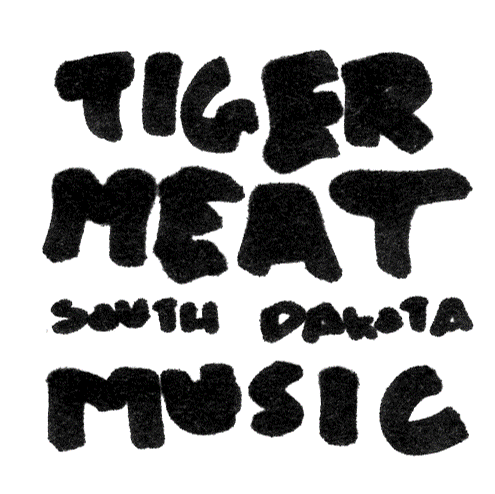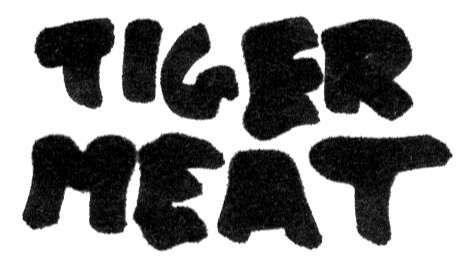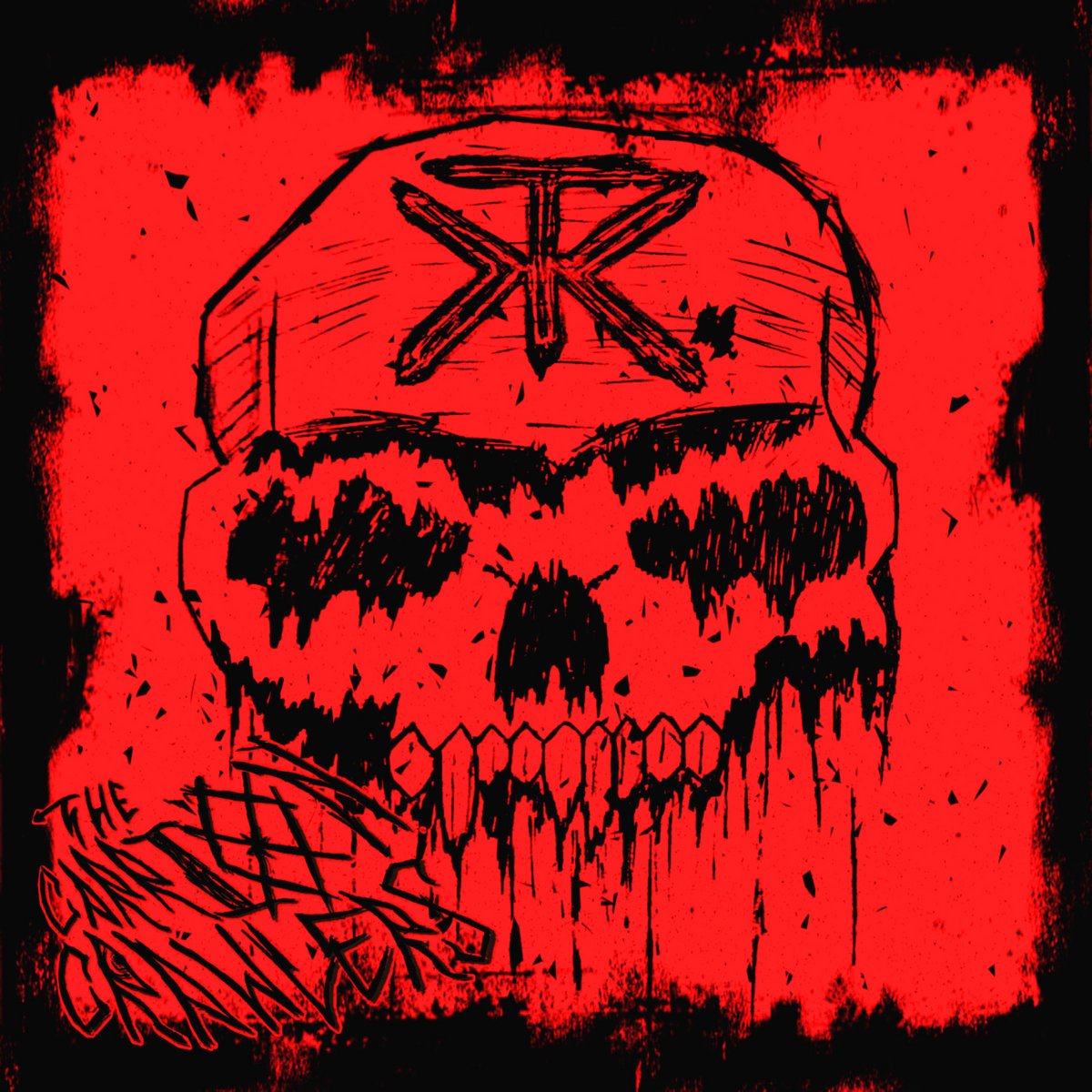JUQ
axel
2021 | Pop
— track 4: “My hard workin’ big ole’ ndn country boy… they’ll never be you.”
Wanbli Ceya: It's a process to feel properly seen as myself. I always feel like I want to be able to assert my space, like, "No, here's what I'm experiencing. Here's what I'm dealing with." I know to some degree I can't control everything, but I'll still say what I want to fucking say. I'll say exactly what I feel like needs to be said in pertinence to my own situation just to better have that depiction. I know the kind of women that I'm used to when it comes down to it, I know the men that I'm used to, and I feel like I wanted to be able to just express that fully. People could just assume that I'm probably going to be any fricking gay stereotype, or whatever the fuck. [The song] "My hardworkin' big ole' ndn country boy," is just a native version of Brokeback Mountain, basically. The complexity of being men who are not the gay stereotypes, to actually deal with that experience. There's a whole new imbalance and hardship that can come when you have to uphold this image of masculinity, and then you experience this kind of connection where it comes out of nowhere. I feel like I've never been given any groundwork to be fully myself, that's why it was so difficult for me to really even fully embrace this mixtape, [axel], because it was still like, "Am I gonna perform these songs at every event that I could possibly do?" Even the ones that are not as sexual. “Would I perform this in front any of my people or for the youth?” Because those attitudes and those mindsets are still there. "Should I be somewhat afraid of actually trying to own up to these feelings still?" Especially so publicly. That's still a very real fear in our communities, especially here in South Dakota, just with how much anti-LGBT rhetoric is still being promoted and pushed here.
//\\//\\//
Obviously, within the mainstream realm of things, people are never really aware of how much of an Indigenous music scene there is, even in America. Now, things are kind of transgressing where that mainstream representation could become a bit more of a reality. In some ways it already has, but now it feels like I could pop off in a big way, especially with TikTok. That’s my biggest platform, it's just over 14K [followers] now. TikTok, just seeing the people that have been so fricking awesome and supportive. What’s been working really, really well for me is whenever I do these little videos where I just kind of tell people what I'm doing, and who I am, and anything that I have going on, I can just be my cute little self, I guess [laughs]. And people just kind of take to that in some capacity and then they want to help out if I have anything. Like recently I did a deluxe version of yamni, so I made a video for one of the new songs I've been trying to push called "Pretty Bi Femme Lakota Winyans." Now that's garnered just over 27,000 views, which is — you know, I was like, "Okay! Cool! [laughs]" I'm feeling like it's gonna get real big here real quick.
I definitively feel like [axel] is my best mixtape, even though yamni is my favorite. Especially just being able to use this little moment with the Nammys. [I] garnered two nominations for Best Male Vocalist and Best R&B Recording. The Best Male Vocalist category is for both my previous mixtapes, nya and yamni, so it’s like I could win for both of them. It's just something real cool and I am hoping for the best. So the Nammys is basically, the Native American Grammys: it's the Native American Music Awards. The Grammys used to actually have a Native American category, and then they ended up merging the Native American category with regional roots. So when that whole situation went down, where [The Grammys] got rid of that category, they branched away and launched the Nammys. I think they've been active since 2000, and have been becoming more of an established presence, and an influential thing, People who win Nammys seem to get a leg up in things, and can use it as a marketing thing. So I'm hoping for the best, but at the end of the day, it's always obviously an honor to be nominated. It's just a really fun moment. It's never felt more accessible, especially being an artist like me, you know, used to be in a small town in Iowa, to now I'm just on the rez, and now like, "Oh, wow, I’m fricking growing my platform and becoming this thing." Especially being an Indigenous artist, with how much that visibility, or even that accessibility has never really been there. Now it's like, "Okay! I'm good!"
//\\//\\//
I stay right on Pine Ridge. Grew up in a small town, Humboldt, Iowa. My ina and my thunwin, those are my mom and my aunt — they're twins, they're chekpa, that's the term — they were adopted out when they were about six months old, but in their 20s they reconnected with a lot of our family on the rez. My mom struggled with alcoholism, and my dad was just like a — I don't know, kind of just a chill white guy that wasn't necessarily the most involved parent, so I had my own space to just "be" — other than dealing with their messiness. But after they split and I went to stay with my grandma that's when music came into the fray, around middle school age, that's when I started to write. And I wasn't really that great at it, definitely. But at the same time, I was latching onto it more and more, and I just kept getting better. A lot of my mindset, and my gifts started to come in my sophomore year, that's when I felt like I could really easily craft a song. At the time I was more leaning into the rap sound, but obviously now I've taken more to this whole popstar rhetoric.
With yamni and axel, I wanted to be real. I wanted to be very much authentic about what I was experiencing when it came to my love life or my sexuality. And the hardest thing — the reason why axel exists — was dealing with, not only just being attracted to men but it was also the brand of men [laughs]. It was always manly, masculine dudes, the cowboy type, low key, but also if they were a manual labor type, probably liked sports, any handyman stuff they knew how to do it — that was the kind of men I was always finding myself attracted to. And the consistent themes and why axel sounds the way it does was like, "Oh, what were the genres that these men were always listening to?" It was always country, rap, or heavy metal. So I wanted to lean into that for this album, while still playing into my pop/R&B, somewhat girly, feminine kind of thing that I already had been doing. But then just actually owning up to everything, owning up to what I did experience, or the things that I want. Because that's what the Oglala Wolfpuppy [alter ego] always kind of was, it was a mix of my base of reality, but then also my fantasy. axel was just definitely a really crazy step. It's still something that I feel so weird doing — like, actually trying to sing these songs that are about guys. That stuff is such a trip for me.
The bigger theme with axel is just more-so about critiquing the way Native men interact with each other. Down to even the somewhat homoeroticism that can happen, especially among straight Native men, and flipping all this different stuff on its head, to be like, "I just want you all to deal with what you already have here.” Like, because this could already be seen like it's a whole mess of closeted, probably bi, Native men or some stuff like that. For our people, when it comes down to the colonial traumas that we had faced, like the boarding schools, that level of anti-LGBT rhetoric is so deep, especially amongst Indigenous men. It's like imagining the same rhetoric that you're less of a man because you could be attracted to other men, but then it's hammered down even harder without really much comfort. So I was like, "Let me try to play with this, and I know the response that I'll get, but it's just real. And at the same time, I'm me." It's been such a unique experience as a whole, very freeing in so many different ways to be so real. But this project is crazy, because it's not as much of a happy ending. I felt like there was a direction of hope with these last three mixtapes, [but with axel] it's like, "Damn, I'm dealing with these really messy situations when it comes to men."
In the first two tracks, the main guy that I'm speaking to, the guy that had brought me back into our culture — we just kind of developed this connection. And after releasing this project, I realized more stuff about my gender, that's why I use she/they pronouns, and I ended up revealing that in the end of axel. But within those first two tracks, it's relaying that weird, complex dynamic that comes into play because these men have these hardened ideologies of, you know, they can't behave this way with someone like me. They can't do this because I don't have the matching anatomy that would make sense for them. Regardless of even how our own culture receives this stuff — our culture was already very accepting of this stuff. Our culture didn't assume gender by anatomy. That's something that gets wiped out very easily just because of everything that's happened to us. But then I'm here to be like, "Hey, that's not how this actually is.” But I can't control how circumstances go down. It was just interesting to revel in these different feelings and emotions, and to put everything out there, in every sense of the word.
I referenced another guy that I was involved with in the song "SKA." It was over a white guy that I was involved with as well. I liked that juxtaposition of being able to acknowledge the situation that I had with a Native man, but then also a white man. "SKA," when it came to that song, it was like, "How can I relay the complex nature of me (as a Native who is culturally inclined) dealing with this guy? This clean-cut, Christian, ‘Wonder Bread’ of a white boy, you know? [laughs]” He's one of those white guys, one of the friendliest, outgoing, just really loves to interact with people, you know, he has a wife and kids and you wouldn't think anything of it, it was that kind of situation. And I just wanted to dive into it, while also trying to play with other things.
I like that in track eight I referenced my dad, because when I really think about it I'm like, "Damn, these men almost kind of feel akin to my dad in some way, shape, or form. [laughs]" That's the whole thing with PTSD and how it plays into the Oglala Wolfpuppy thing, because everything feels like we're always consciously or subconsciously dealing with things that are from our childhood. For me, my dad was never a source of trauma, he was a bit more of the comfort presence, but at the same time, there were very coherent problems that I do avidly bring up throughout the album of dealing with these emotionally stunted and inexpressive men that don't really know how to deal with themselves at all. It also boils down to like, "Damn, I'm probably just fucking getting attached to these men, because they feel familiar, but they're almost damn near doing the same shit that I had already experienced from my own dad."
And then with my oldest brother, that's when I saw more of the violence, more of the messed up stuff, because I watched him abuse my grandmother for a couple years. It was a really, very traumatic circumstance. But that was after my parents had split [when I was] around nine years old, and went to stay with my grandma, lo and behold that was going on. And so I went through that stuff. I have really dealt with these different forms, fully, of toxic masculinity. It's not always an incredibly violent, messed up situation. Sometimes that same toxic masculinity can just transgress in a man that can barely bond with his own kids, or can barely be real about his own feelings unless he's got a few drinks in him. axel is like a call to action, in a way. Like, "Okay, let's just acknowledge that this isn't working for anybody. Men are not benefiting from the circumstances at all. It's all illusion, and we know it's just gonna keep creating these cycles of misery, especially for women, two spirit LGBTQ+, our babies, so on and so forth.” So just, yeah, it's a lot.
I think the instant that my “Gay Man-ifesto” really comes together is in track number seven, "2.” It's diving into these two definitive situations that happened to me with these two men, and the overall real deep-rooted issue that plagues Indigenous men, even men as a whole: "When are men going to make this collective decision to actually neuralyze and heal these systemic wounds that are plaguing all of them?" Especially if we want to play to the dramatics of everything in pertinence to climate change, we're constantly dealing in a world that is riddled with violence. Violence mostly perpetuated by men. I label it as a "Gay Man-ifesto" because of the nature of these relationships, but at the same time it's from that perspective of what I would want to express to any man that I could ever encounter, like, "We need to heal this shit. We need to snap out of what's been done to us and kept us in this really fucked up place." From my own experiences, there's some real deep rooted issues that even affect the women they're supposed to like, it becomes this whole thing where it's just like, "Damn this is really messy and heavy, but we have to change it.
//\\//\\//
My debut album is out in November, it's gonna be mostly a Lakota language album. Real artsy, real different, it'll definitely expand. It's going to be called Matowin, which is "bear woman" in Lakota. It correlates with this rediscovery of my sense of self, and just continuing to expand off of what I've already developed with my artistry thus far: of what my culture has been, what my Oglala Wolfpuppy character has been, and how liberating it has been for me. These four mixtapes, each one was dedicated to a specific lover that's within the Oglala Wolfpuppy cannon, I guess. And now, [with the debut album] it's like I'm coming back to me. Like now we're just going to really deal with myself, and really just liberate myself in that sense, to fully exist authentically. I really have some crazy stuff planned, and I'm hoping that I can get enough people behind everything, because I really want to get crazier with the visuals, and just up my game, up my presence as a whole. I feel like I haven't been able to properly show everything that I am quite yet. I mean, I feel like I always put it into the music, but now I really want to give people the person, the presence, the icon, whatever. Just something that hits, and something that's just too tangible for people, whether they would ever want to brush me to the side, now it's just like, “You don't even have a choice in that matter anymore. I'm just here, extremely Oglala, bi, polyam, everything, and everybody's gotta deal [laughs].” And so, this album's just so fun. It's so crazy. I'm just expanding on everything that I've already been doing. This will be such a moment in itself, I think a lot of people will really, really resonate with it. It's packed with so much. I don't know, It's exciting. Things are really, really fun right now.
JUQ’S ESSENTIAL SOUTH DAKOTA ALBUMS
The Carrion Crawlers — The Carrion Crawlers (2022)
Alex Firethunder — Makȟóčhe Kiŋ Theȟíla (Love for the Land) (2019)
Bazille — TAKU SNI (2022)
Various Artists — Dakota South Records: A Decade of Hits (2022)
SOURCES
Ceya, Wanbli. Interview. By Jon Bakken. 25 April 2022.








